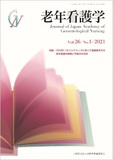Japanese
English
- 販売していません
- Abstract 文献概要
- 参考文献 Reference
抄録
【目的】認知症および認知機能低下を有する入院・入所高齢者への身体拘束減少に有効な介入プログラムについてシステマティックレビューとメタアナリシスにより評価する.【方法】The Cochrane Handbookの手法により,系統的レビューを行った.文献の適格基準は,①入院・入所中の65歳以上の認知症等高齢者を対象,②身体拘束をアウトカム指標に含む,③ランダム化比較試験とした.メタアナリシスには,Review Manager 5を用い,変量効果モデルによるリスク比(RR)を算出し,異質性はI2統計量により評価した.【結果】14文献が選定され,そのうちスタッフ教育による身体拘束の減少を報告した文献が4件あった.スタッフ教育の内容は,ケアの理念,せん妄予防,拘束帯使用の意思決定,拘束代替案,認知症ケアや入所者との相互作用の強化であり,時間数は30分〜16時間と幅があった.メタアナリシスでは6文献,1,355人分を統合したが,身体拘束の実施者数に差は認められず(RR=0.88;95%Confidence Interval=0.72−1.08;I2=70%),盲検化,および症例減少バイアスを認めた.【結論】高齢者ケア施設に勤務するスタッフへの教育は,入院・入所高齢者の身体拘束の減少に定性的評価では有効である可能性が示唆されたが,メタアナリシスでは統計学的有意差がみられず,エビデンスは限定的である.
[Purpose] This systematic review and meta-analysis evaluated interventions for reducing the use of physical restraints in hospitalized and institutionalized older adults with neurocognitive disorder and dementia.
[Methods] We conducted a literature review according to the Cochrane Handbook. The eligibility criteria were as follows: i) intervention performed for hospitalized or institutionalized older adults with neurocognitive disorder or dementia, ii) studies that included physical restraint as outcome criterion, and iii) randomized controlled trials. Review Manager 5 was used for the data analysis. We applied a random effect model, calculated the risk ratio, and then assessed heterogeneity using I2 statistic.
[Result] Fourteen studies fulfilled the inclusion criteria. Four studies suggested a significant decrease in physical restraint by the staff education. The educational programs ranged in duration from 30 minutes to 16 hours, and the contents included the following: philosophical theory, delirium prevention, decision making of the use of physical restraint, care not to use physical restraint, dementia care, and reinforcement of the interaction with residents. Six studies on staff education involving 1,355 participants were identified in the meta-analysis. The intervention of implementing an educational program did not have a significant difference (RR = 0.88, 95% CI = 0.72-1.08 ; I2 = 70%), and blinding and case attribution biases were found.
[Conclusion] Staff education suggested an effectiveness in reducing the use of physical restraints for institutionalized older adults with neurocognitive disorder and dementia by the qualitative evaluation. However, the evidence was shown to be limited because statistically significant difference is not found in the meta-analysis.
Copyright © 2021, Japan Academy of Gerontological Nursing All rights reserved.


